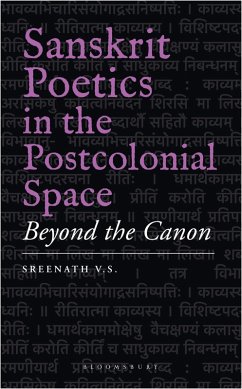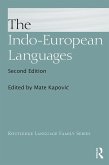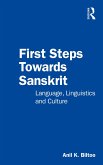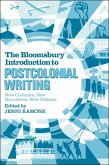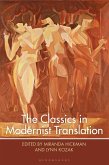The book positions Sanskrit poetics in a postcolonial context to understand its contemporary relevance and proposes a productive future direction for this system of knowledge.
The fundamental argument against Sanskrit poetics in modern literary circles is that it is a system of knowledge that does not have any contemporary relevance, since the idea of literature conceptualised by Sanskrit poetics is incompatible with the modern notion of literature. The general argument is that Sanskrit poetics has only the archaic value of a museum piece.
This book which resists such an extremist approach to Sanskrit poetics aims to provide a new direction for Sanskrit poetics to generate new knowledge about this epistemology. The new approach that the author proposes is explicated through three major theoretical positions in Sanskrit poetics, namely dhvani, aucitya and vakrokti.
The fundamental argument against Sanskrit poetics in modern literary circles is that it is a system of knowledge that does not have any contemporary relevance, since the idea of literature conceptualised by Sanskrit poetics is incompatible with the modern notion of literature. The general argument is that Sanskrit poetics has only the archaic value of a museum piece.
This book which resists such an extremist approach to Sanskrit poetics aims to provide a new direction for Sanskrit poetics to generate new knowledge about this epistemology. The new approach that the author proposes is explicated through three major theoretical positions in Sanskrit poetics, namely dhvani, aucitya and vakrokti.

